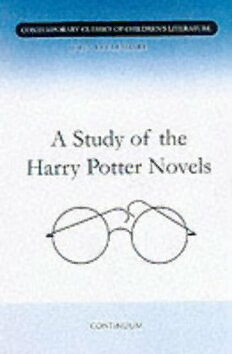
Guide to the Harry Potter Novels (Contemporary Classics in Children's Literature) PDF
123 Pages·2002·5.837 MB·English
Most books are stored in the elastic cloud where traffic is expensive. For this reason, we have a limit on daily download.
Preview Guide to the Harry Potter Novels (Contemporary Classics in Children's Literature)
Description:
J.K. Rowling is half-way through a series which has taken the world by storm. Unusually, she has attracted success both in terms of massive sales figures and critical acclaim. This study looks at her books and considers some of the reasons for their phenomenal success. This is done against a background of how Harry Potter relates to other contemporary children's books so that students and teachers can place them in the context for which they were written. The underlying thesis is: when J.K. Rowling wrote the first Harry Potter title and planned the rest, she drew on her considerable experience as a reader and, through her powers of story telling, created a world of her own. What was initially imitative has, with her gaining confidence, become witty pastiche (or, as it was recently described, intertextuality). This, combined with an unusual ability to tell a long story and to keep up a flow of creative invention, has enabled her to create four absorbing novels that have given story telling a good name for adults and children alike.
See more
The list of books you might like
Most books are stored in the elastic cloud where traffic is expensive. For this reason, we have a limit on daily download.
